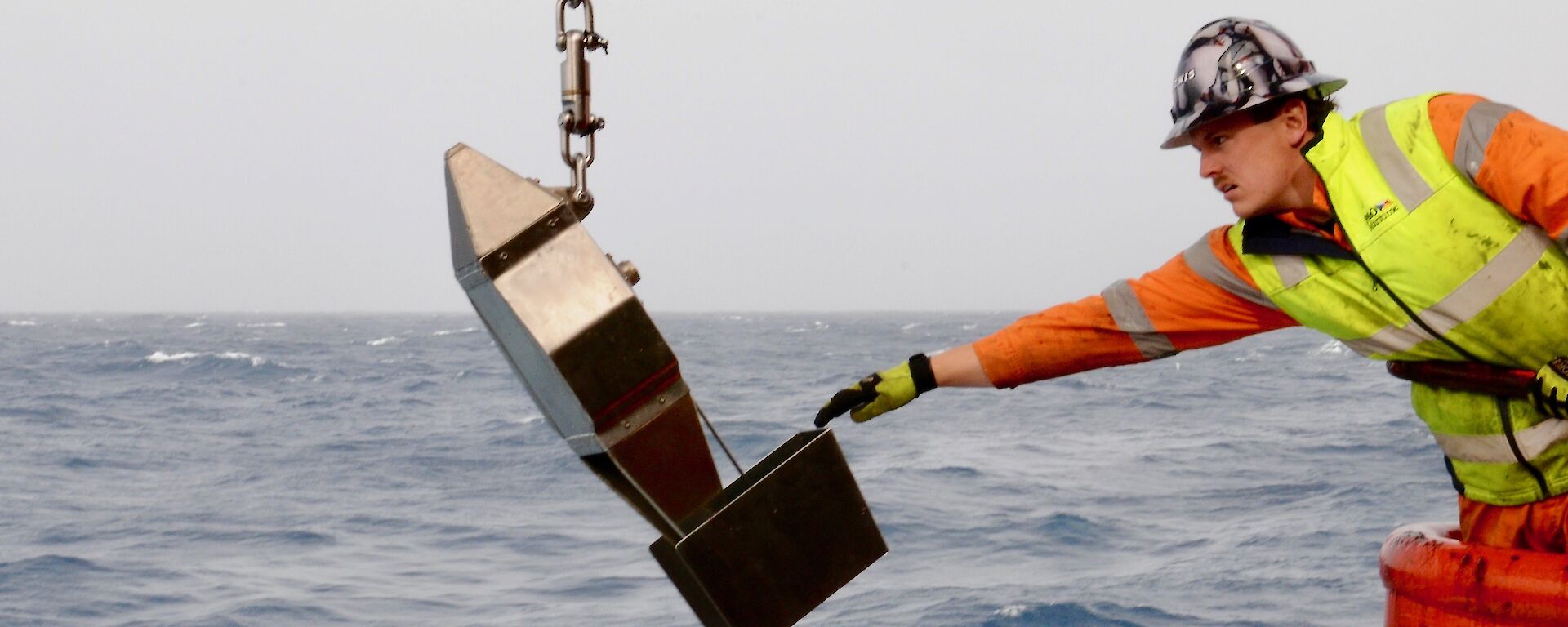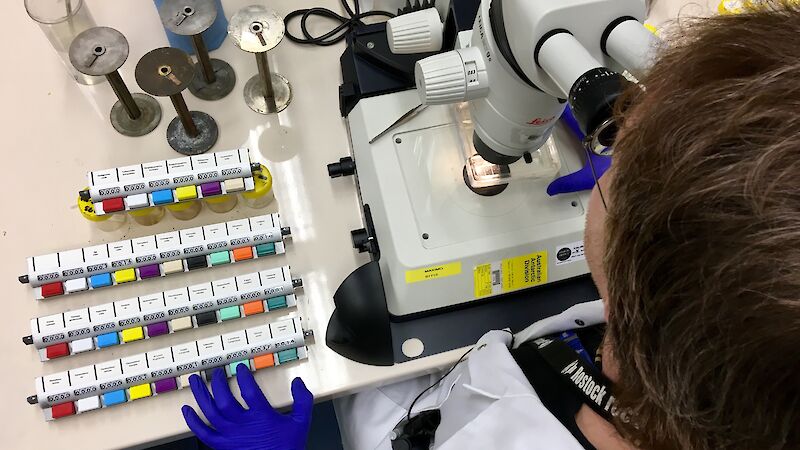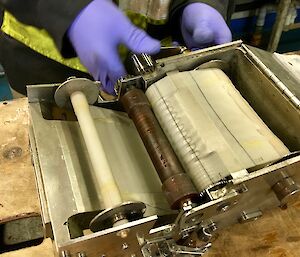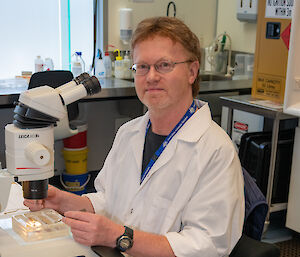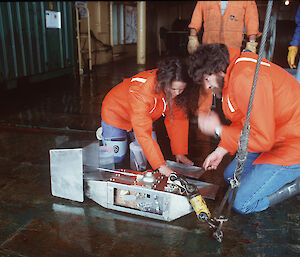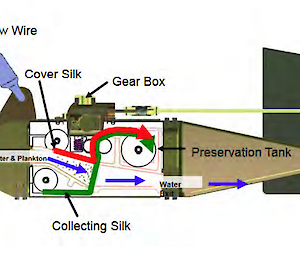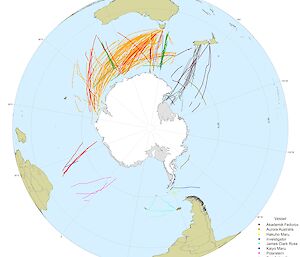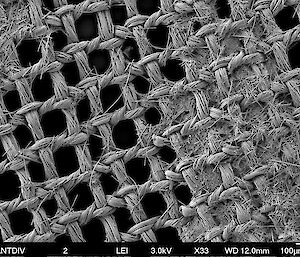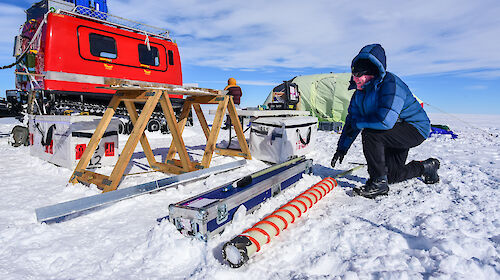A CPR is an ingenious sampling device towed behind ships to trap zooplankton between moving sheets of silk.
The ‘silk-and-plankton sandwich’ is wound up in a removable cassette, driven by the passing water turning a propeller, at a constant rate of 1cm for each nautical mile travelled.
Zooplankton biologist John Kitchener processes the samples for the Australian Antarctic Division’s plankton ecology and monitoring program.
Since 2007, he’s deployed 140 tows and counted around 27,000 samples.
“The CPR has proven to be the most cost-effective and efficient method for long-term monitoring,” said Mr Kitchener.
“It quickly, routinely, and consistently collects real on-site data about zooplankton populations over large oceanic distances using a standard sampling method.”
Zooplankton are microscopic animals that swim in the ocean and provide food for larger marine creatures such as krill, fish, whales and penguins.
Changes in the distribution, abundance and composition of zooplankton populations are likely to have substantial flow-on effects through the rest of the Antarctic food web.
“Although small in size, plankton provide the primary food source for a wide variety of marine species and form the base of the oceanic food chain,” Mr Kitchener said.
“Plankton may have an important role as key indicators of ecosystem change in the marine environment.”
Since the Aurora Australis’ first tow in 1991, the survey has grown rapidly to sample 70 percent of the Southern Ocean with ships from Australia, Japan, New Zealand, South Africa, France and Brazil.
To date, more than 1,000 tows have been conducted by the Southern Ocean Continuous Plankton Recorder (SO-CPR) survey.
These have provided nearly 58,000 samples at 5 nautical mile resolution, for more than 290 zooplankton taxa and developmental stages.
The Australian Antarctic Division has processed more than 40,000 of these samples, covering approximately 205,000 nautical miles (about the distance from the Earth to the Moon).
A “Report on the Status and Trends of Southern Ocean Zooplankton based on the SCAR Southern Ocean Continuous Plankton Recorder (SO-CPR) Survey” was published in late 2020.
Mr Kitchener said this substantial report brings together all the information and highlights achievements over nearly 30 years of SO-CPR dataset analyses.
The report notes that continued improvement of baseline information on zooplankton abundances and distributions enables understanding of the impacts of climate change on the ecosystem, and early detection of any invasive species.

